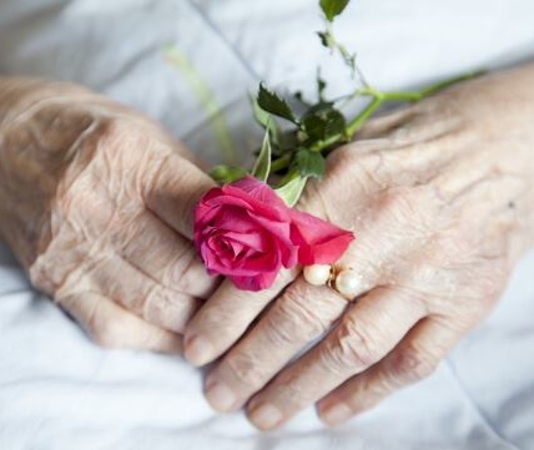Lisa Shultz, author and family caregiver, is a family caregiver to her mother. In March, she was suddenly informed that her weekly visits were suspended to see her mom in an assisted living facility in response to the COVID-19 virus and efforts to reduce the chance of spreading the disease. She shares what this has been like and how both are managing the new temporary normal
- Are you able to visit your Mom at this time? If not, can you share how she is managing?
Since my mom moved to an assisted living facility in January 2018, I have visited her weekly. My visits were part assistance and part companionship. I would place her pills in a weekly organizer and order new medication. I would attend to her oxygen machine and bring her supplies from the grocery store that she requested. Without warning, all visits were suspended to her facility as of Saturday March 14. At first I was upset and emotional but that distress quickly passed. My mom has always modeled acceptance, and so I took a big breath and began my adjustment of the new policies. I sent an email to all of our extended family and suggested that they send my mom emails, cards and call her to shower her with love. This strategy worked well! My mom reported she was so busy answering emails and the phone that she was very busy. Fortunately, I had carefully printed out a list of her medications and what time of day they were taken. This list will enable a staff member at the facility to perform this weekly task for her. We now talk on the phone or email daily to keep each other updated and maintain our companionship without actually being present in the same room.
- What advice do you have for family caregivers who might be in the same situation as you are now? Should they embrace their new freedom and get over the guilt?
I do not have guilt that I am not able to visit my mom because the order to not visit is out of my control and for the safety of keeping the residents healthy. I feel a pang of worry that her spirits will drop if the facility maintains the no visitor policy for an extended period of time. My way of reassuring my mom is by telling her positive stories each day. I am currently organizing family photo albums and I let her know that I am making great progress. No matter how each day goes in the ever-evolving situation, I report that I taking good care of myself.
- You wrote a blog with several ideas for how to make the most of this time at home for people who might be working remotely or unable to travel as a result of social distancing guidelines or more stringent policies. What are the three at home activities that you have found most helpful?
Three home activities that I am practicing and encouraging: 1. Keep a daily journal of life during this unprecedented time. Future generations may want to read about that experience. 2. Organize family photo albums. Set time aside each day to sort pictures. Digitize if possible and share with other family members online. Create Legacy Albums of family history and scrapbooks. 3. Use this time to reflect and connect. Each day, choose at least one person to reach out with email, text or a phone call. Check on family and friends. Our time of self-isolation may be a time that we strengthen our bonds despite not being physically present with each other.
- As a family caregiver, what has changed for you since this all began?
I can still be a caregiver of emotional and spiritual support for my mom and those I love. Each day I have a choice of my attitude. I am stretched to expand my creativity of ways I can be a vital link of support to my mom. My mom needs me to be strong and my daughters need me to be solid role model. Day by day, I will do my best to be grateful for what I still have and can do.
Lisa J. Shultz is an author of the books A Chance to Say Goodbye: Reflections on
Losing a Parent and Lighter Living: Declutter. Organize. Simplify. She also wrote a recent blog entitled Coping Strategies for Coronavirus Self-Isolation.





